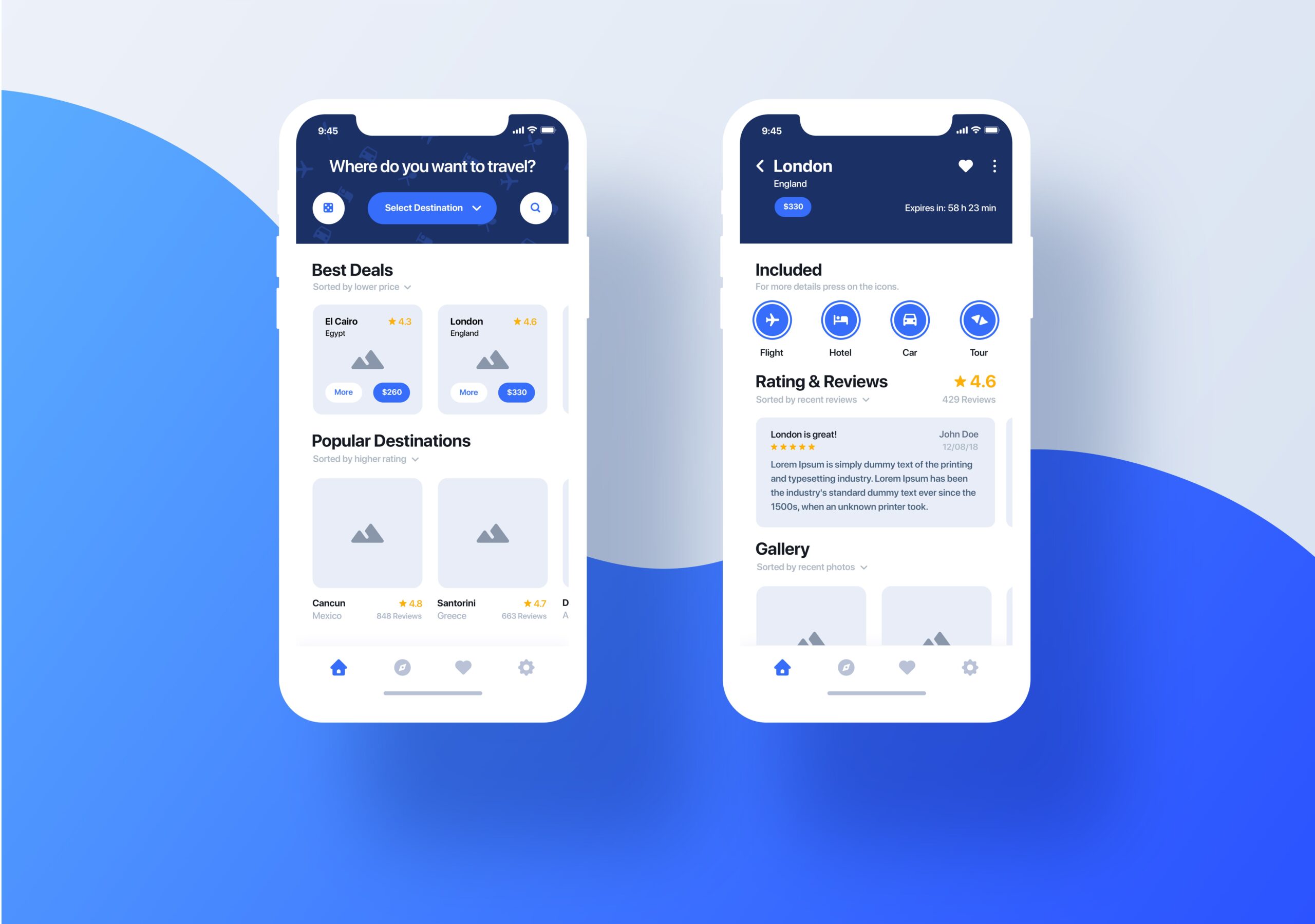In the fast-paced world of digital marketing, businesses are in a constant race to grab the attention of potential customers. With millions of websites vying for clicks, standing out can feel like searching for a needle in a haystack. Run a Pay-Per-Click campaign (PPC campaign), a powerful strategy that lets brands cut through the noise and reach their target audience with precision. Whether you’re a small business trying to make a mark or an established brand looking to solidify your online presence, a well-executed pay-per-click campaign can offer unparalleled visibility and measurable results.
But what exactly is PPC? Why is it such a buzzword in digital marketing circles? And more importantly, is it worth the investment? This blog delves into the intricacies of pay-per-click advertising, shedding light on its benefits, challenges, and how you can harness its potential to drive traffic, boost sales, and achieve your marketing goals.
Before diving into the mechanics of PPC, let’s start with the basics—understanding what it is, how it works, and why it’s an essential tool in any digital marketer’s arsenal.
Pay-Per-Click Advertising
At its core, pay-per-click advertising (PPC) is a digital marketing model where advertisers pay a fee each time their ad is clicked. Instead of earning visits organically, businesses bid for ad placement on search engine result pages (SERPs), social media platforms, or other digital spaces. This allows companies to position their offerings directly in front of users actively searching for related products or services.
The most common type of Pay-Per-Click campaigns occurs through search engines like Google, where advertisers bid on keywords relevant to their business. For example, a local bakery might bid on the phrase “best cupcakes near me.” When a user types this into a search engine, the bakery’s ad could appear at the top of the results page.
Why PPC Advertising Is So Effective
- Immediate Visibility: Unlike organic SEO strategies that can take months to show results, PPC ads provide instant exposure, driving traffic almost as soon as campaigns are launched.
- Targeted Reach: With PPC, advertisers can fine-tune who sees their ads, using factors like location, demographics, and even browsing habits to ensure their message reaches the right audience.
- Measurable ROI: PPC platforms like Google Ads provide detailed analytics, allowing businesses to track performance and calculate their return on investment with precision.
For businesses looking to make an immediate impact, pay-per-click advertising is a proven strategy to drive qualified leads and build brand recognition. However, understanding its nuances is crucial to maximize results and avoid wasting your budget.
To learn more about the basics of PPC and how it works, you can also visit the tutorial below:
For broader PPC strategies, HubSpot’s article on What is PPC? offers excellent insights.
What is Pay-Per-Click in Digital Marketing
In digital marketing, pay-per-click campaigns are one of the most direct and efficient ways to connect with an audience actively searching for specific solutions. It’s not just about placing ads; it’s about strategically targeting the right users at the right time to drive traffic, generate leads, and convert sales.
How Pay-Per-Click Campaigns Work
PPC operates on a bidding system, particularly in platforms like Google Ads. Here’s how it typically works:
- Keyword Research: Advertisers identify keywords that are relevant to their products or services, ensuring these terms align with what potential customers are searching for.
- Ad Creation: Compelling ad copy and visuals are crafted to capture the attention of users and encourage clicks.
- Bid Placement: Advertisers set a maximum amount they’re willing to pay for a click on their ad. This bid determines their position in search engine results or display placements.
- Auction System: Every time a user enters a search query, an auction determines which ads appear based on relevance, quality, and bid amount.
- Click and Conversion: When a user clicks on the ad, they are directed to a landing page designed to encourage specific actions, such as filling out a form, making a purchase, or contacting the business.
Why Pay-Per-Click Campaigns are a Cornerstone of Digital Marketing
Pay-per-click campaigns thrive in the digital marketing ecosystem because of their ability to deliver fast, measurable, and scalable results. Key reasons include:
- High Intent Traffic: PPC ads target users already demonstrating an interest in your product or service, leading to higher conversion rates.
- Flexible Budgets: Campaigns can be scaled up or down depending on performance and business goals, making PPC accessible to businesses of all sizes.
- Data-Driven Decision Making: Tools like Google Ads and Bing Ads provide in-depth metrics, enabling advertisers to optimize campaigns based on performance.
If you’re just getting started with PPC, resources like WordStream’s Beginner’s Guide to PPC are invaluable. They break down the process step-by-step and offer insights on how to maximize campaign success.
PPC Marketing
PPC marketing is a dynamic and results-oriented approach to advertising that allows businesses to strategically position their offerings in front of potential customers. Unlike traditional advertising methods that rely on broad reach, PPC ensures your budget is spent on targeting specific audiences who are most likely to engage with your brand.
The Key Elements of PPC Marketing
- Keyword Targeting
Effective PPC campaigns begin with thorough keyword research. Keywords should be highly relevant to your business and capture search intent. Tools like Google Keyword Planner or SEMrush can help identify high-performing keywords that align with your target audience’s needs. - Audience Segmentation
PPC platforms offer advanced targeting options, such as demographic filters, geographic restrictions, and even psychographic indicators. For instance, Facebook Ads allows advertisers to target users based on interests, behaviors, and life events. - Ad Creative
A compelling ad can make or break a campaign. PPC marketers experiment with engaging headlines, strong calls-to-action (CTAs), and eye-catching visuals to maximize click-through rates (CTR). - Landing Pages
Once a user clicks on an ad, the landing page plays a critical role in driving conversions. High-performing PPC campaigns often feature dedicated landing pages optimized for speed, clarity, and user engagement. - Tracking and Optimization
PPC marketing thrives on data. Marketers analyze metrics such as CTR, conversion rate, cost per click (CPC), and return on ad spend (ROAS) to refine their campaigns. Continuous A/B testing ensures ads and landing pages remain optimized for maximum impact.
Popular Platforms for PPC Marketing
- Google Ads: The most widely used PPC platform, enabling businesses to display ads on Google’s search engine results pages and across the Google Display Network.
- Microsoft Advertising: A competitor to Google Ads that offers ad placements on Bing and its partner sites.
- Social Media Ads: Platforms like Facebook, Instagram, LinkedIn, and Twitter allow advertisers to create PPC campaigns tailored to specific social audiences.
- Amazon Ads: Ideal for e-commerce businesses, Amazon’s PPC system places your products directly in front of shoppers.
Is Pay-Per-Click Worth It?
Investing in pay-per-click campaigns can be one of the most effective ways to generate leads and drive revenue, but it’s not without its challenges. Understanding the cost-benefit dynamics of PPC is essential to determine if it’s worth the investment for your business.
The Advantages of Pay-Per-Click
- Fast Results
Unlike organic strategies, which may take months to yield noticeable results, PPC campaigns can drive traffic almost instantly. This makes PPC an excellent choice for businesses looking to achieve quick wins, especially during product launches or seasonal sales. - Budget Control
PPC platforms allow advertisers to set daily budgets, ensuring that spending stays within manageable limits. This flexibility is invaluable for small businesses and startups working with limited resources. - Highly Targeted Traffic
PPC advertising connects businesses with users who are actively searching for their products or services. This intent-driven nature of PPC ensures higher conversion rates compared to other advertising methods. - Measurable ROI
Every aspect of a PPC campaign is measurable. Metrics such as impressions, clicks, and conversions provide a clear picture of how well a campaign is performing, enabling marketers to calculate ROI accurately.
Potential Drawbacks of PPC
- Cost Overruns
Without proper management, PPC costs can spiral out of control, especially in competitive industries where bids for keywords can be high. For instance, keywords in the legal or financial sectors can cost upwards of $50 per click. - Short-Term Impact
PPC traffic stops the moment you stop paying. While it’s great for immediate results, it doesn’t build long-term visibility like organic SEO does. - Learning Curve
Running effective PPC campaigns requires expertise in ad creation, keyword bidding, and audience targeting. Mistakes can lead to wasted spend and poor campaign performance.
Is PPC Worth It for Your Business?
The value of PPC depends on your specific goals and circumstances:
- If you’re a startup aiming for rapid brand awareness, PPC can deliver immediate exposure.
- Established businesses can use PPC to supplement their organic marketing efforts, dominating both paid and unpaid search results.
- E-commerce platforms often find PPC especially beneficial, as it allows them to target shoppers actively looking for their products.
To maximize the benefits of Pay-Per-Click campaigns, it’s essential to work with experienced marketers or agencies who can help manage your campaigns effectively. For a deeper understanding of ROI from PPC, Neil Patel’s article on PPC can be suitable.
Pay-Per-Click Advertising on Google
When it comes to pay-per-click campaigns, Google Ads is the undisputed leader. With billions of searches conducted daily, Google provides businesses with unparalleled access to potential customers actively searching for products, services, or answers.
The Basics of Google Ads
Google Ads operates on a Pay-Per-Click campaign model, where advertisers bid on keywords to secure ad placement in Google’s search engine results pages (SERPs) or across the Google Display Network. Ads are triggered by search queries or appear on relevant websites, videos, or apps, depending on the campaign type.
Key components of Google Ads campaigns include:
- Search Campaigns: Ads appear in Google’s SERPs when users search for relevant keywords.
- Display Campaigns: Visual ads are displayed across Google’s partner websites and apps.
- Shopping Campaigns: Designed for e-commerce businesses, these ads showcase product images, prices, and descriptions.
- Video Campaigns: Advertisements run on YouTube and other video platforms.
Creating a Successful Google Ads Campaign
- Choose the Right Keywords
Keywords are the foundation of Google Ads. Use tools like Google Keyword Planner to identify high-intent keywords relevant to your audience. Focus on a mix of long-tail and short-tail keywords to balance search volume and competition. - Optimize Ad Quality
Google evaluates ads based on relevance, click-through rates (CTR), and landing page experience to assign a Quality Score. Higher scores reduce your cost-per-click (CPC) and improve ad positioning. - Set Competitive Bids
Bidding determines how often your ad appears in search results. Google Ads allows for manual or automated bidding strategies, depending on your goals (e.g., maximizing clicks or conversions). - Use Ad Extensions
Ad extensions, such as site links, call buttons, and location information, enhance visibility and provide users with more reasons to click on your ad. - Analyze and Optimize
Continuous monitoring is essential. Use Google Analytics and Ads reporting to track performance metrics such as CTR, conversion rates, and cost-per-acquisition (CPA). Test different ad copy, visuals, and targeting to optimize results.
The Benefits of Google Ads
- Massive Reach: Google’s global user base ensures that your ads can reach almost any audience.
- Intent-Driven Results: Ads target users who are actively searching for related solutions, improving the chances of conversion.
- Scalability: Google Ads campaigns can be scaled to suit businesses of any size, from local shops to global enterprises.
- Diverse Campaign Types: Whether you’re aiming to boost brand awareness, drive e-commerce sales, or generate leads, Google Ads has a campaign type to match your objectives.
Tips for Beginners
- Start with a small budget and focus on a few high-impact keywords.
- Use Google’s Smart Campaigns if you’re new to PPC, as they simplify setup and management.
- Regularly review and adjust bids to ensure you’re staying competitive without overspending.
For step-by-step guidance on creating Google Ads Pay-Per-Click campaigns, check out Google’s Getting Started Guide.
Conclusion
Pay-Per-Click campaigns have revolutionized how businesses connect with their audience, providing a fast, targeted, and measurable way to drive traffic and conversions. Whether you’re a small business seeking to make your mark or an established brand looking to dominate search results, a well-executed PPC campaign can help achieve your marketing goals.
From understanding the basics of what is pay-per-click in digital marketing to exploring advanced strategies like Google Ads optimization, PPC offers something for every business. The key lies in meticulous planning, continuous analysis, and staying adaptable to changing trends and consumer behavior.
While PPC requires an upfront investment and a steep learning curve, the potential for high returns makes it an invaluable tool in any digital marketing strategy. By leveraging platforms like Google Ads, Bing Ads, or social media advertising, businesses can secure visibility in a crowded online marketplace and connect with users who are already primed for action.
For those ready to dive in, start small, experiment with different strategies, and use the wealth of analytics tools available to refine your campaigns. With time and expertise, PPC can become a cornerstone of your digital marketing success.
As the digital landscape evolves, so too will PPC strategies. Staying informed and proactive ensures your campaigns remain competitive and effective.
Don’t let your competitors take the lead—put your brand in front of the right audience today! Whether you’re just starting with your pay-per-click campaign or looking to optimize your existing campaigns, our team of experts is here to help.
Let’s craft a PPC strategy that delivers real results. Contact us now and watch your clicks turn into conversions! You can also valuable information in our informative blogs.



